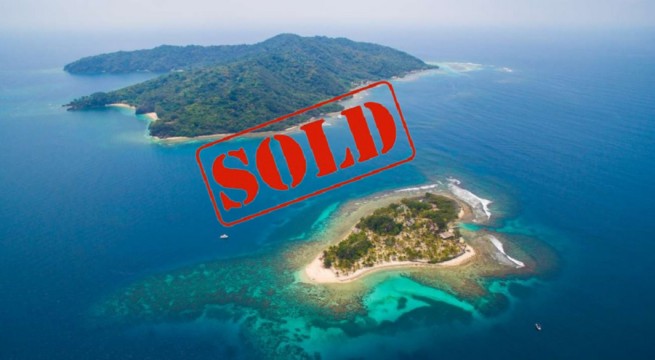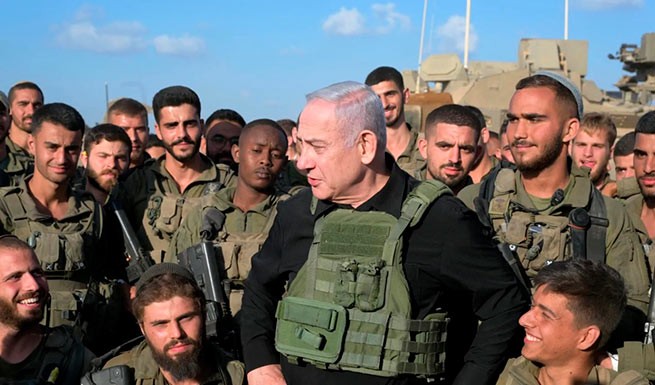The Israeli army has four interrelated goals in Gaza. The IDF has already launched what Israeli Prime Minister Benamin Netanyahu on October 28 called the “second phase” of the war – a ground invasion of Gaza. He warned that this phase would be “difficult and long” and, according to the Economist magazine, he is right.
Israel’s leadership, political and military, must constantly strive and achieve the perfect balance between these four goals, since failure in one of them can lead to the collapse of the others.
Destroying Hamas is a one-way street
The first goal, military, is the destruction of Hamas. Over the past three weeks, the fight has focused on eliminating the group’s military infrastructure, killing its leadership and killing as many of its fighters as possible. A massive attack by a Palestinian organization on Israeli territory and the killing of hundreds of civilians is unacceptable to the political and military leadership, which cannot continue to maintain a wait-and-see attitude towards Hamas, which has been kept at a tolerable level, receiving financial rewards and with the threat of an Israeli attack hanging over its head.
The question after October 7 is of a practical nature. As long as Hamas is in power, Israelis will not feel safe. Many of the thousands who were evacuated from the south of the country will not return to their homes. Another reason is tactical. Hamas humiliated Israeli intelligence and the Israeli army. To reduce the likelihood of such attacks from other organizations, the country must restore its deterrent potential. The last reason is strategic. As long as Hamas is at the helm in Gaza, there can be no talk of any peace process. The conflict between Israel and the Palestinians will continue to the detriment of primarily the residents of Gaza, who, on the one hand, will be subject to bombing, and on the other, will live under the dictatorship of Hamas.
The critical factor of “hostages”
Israel’s second goal is to free more than 220 people who have been taken back to Gaza as hostages. This goal will likely hinder the progress of the fighting. Hamas appears to be using the promise of hostage release to delay an expansion of the Israeli ground offensive. He is likely to try to influence Israeli tactics now that troops are inside Gaza, in the hope that the invading forces will be contained.
The government in Jerusalem has no discretion over the hostage issue. Their importance in Israeli politics is significant because their friends and families fear that without public pressure, Israeli leaders will not achieve a full exchange and there may be casualties. On October 28, the morning after the largest incursion into Gaza to date, families protested the danger of hostages fighting for their survival.
Losses among soldiers and civilians are critical
The third task is to minimize losses – both Israeli soldiers and Palestinian civilians. If many Israeli soldiers die, it could jeopardize the entire Israeli operation. As the number of civilian casualties increases, international pressure will increase for both humanitarian pauses and a complete ceasefire. In the past, such factors have forced Israel to act hard and fast, knowing that time to fight is limited. Today, however, the goal is to destroy Hamas’ network of tunnels, which will take many months.
However, time is already passing quite quickly. The civilian population of Gaza, on the one hand, is killed by Israeli bombing, and on the other, those who survive are trapped in blockade tactics that deprive them of energy supplies. Israel is trying to strengthen its position in negotiations for the release of hostages by preventing fuel from flowing into the strip, as it believes generators in hospitals provide the electricity needed to ventilate and light the labyrinth of tunnels in which Hamas militants are hiding. In this way, he encourages the massive movement of civilians to the south of the sector, where the shelling is less intense. As is easy to understand, the terrible conditions that all this creates inside the sector pose a serious threat to the lives of civilians.
Israeli officials acknowledge that the ground offensive, which they describe as a “maneuver,” must operate within the bounds of international law, and that that law requires them to facilitate civilian access to basic supplies. Therefore, for the war to continue, Israel must find ways to help, even if this makes it more difficult to eliminate Hamas and free the hostages.
Foundations for Lasting Stability in the Middle East
The final goal is to lay the groundwork for resuming work in the Middle East toward final peace, a process that has been stalled for years. Now the idea of a post-war agreement between Israel and the Palestinians in East Jerusalem, Gaza and the West Bank is “unthinkable” to many on both sides, but Israeli generals believe the prospect of real peace is necessary for lasting stability to emerge.
This will require the support of some Arab governments, most likely those that have drawn closer to Israel through the Abraham Accords. And Washington will play its part in this regard by pressuring them to provide funds and diplomatic support. Some even imagine that Arab states will also provide security in Gaza after Israel withdraws.
According to the Economist, in some ways, several Arab governments are on Israel’s side, although they will never admit it publicly. They despise Hamas and its sponsor Iran, and would be happy to see it defeated. But the deaths of civilians pose problems for their relationship. Western governments are also nervous. More than half of the hostages have foreign passports, and they worry about the radicalization of their own Muslim population.
The Economist concludes that Israel’s ground operation is trying to achieve a lot – perhaps more than expected. So far, the country’s generals look like they are trying to square all the circles, moving slowly and striking as hard as possible. According to the British media, they have the strength to do this, but they will find it difficult to do everything that is required of them. And perhaps they will be asked to choose what they want most.







More Stories
Israel launched a missile attack on a facility in Iran, what is known at this hour
Collective West to Israel: “Repelling Iranian attacks is too expensive for us”
Iran attack on Israel